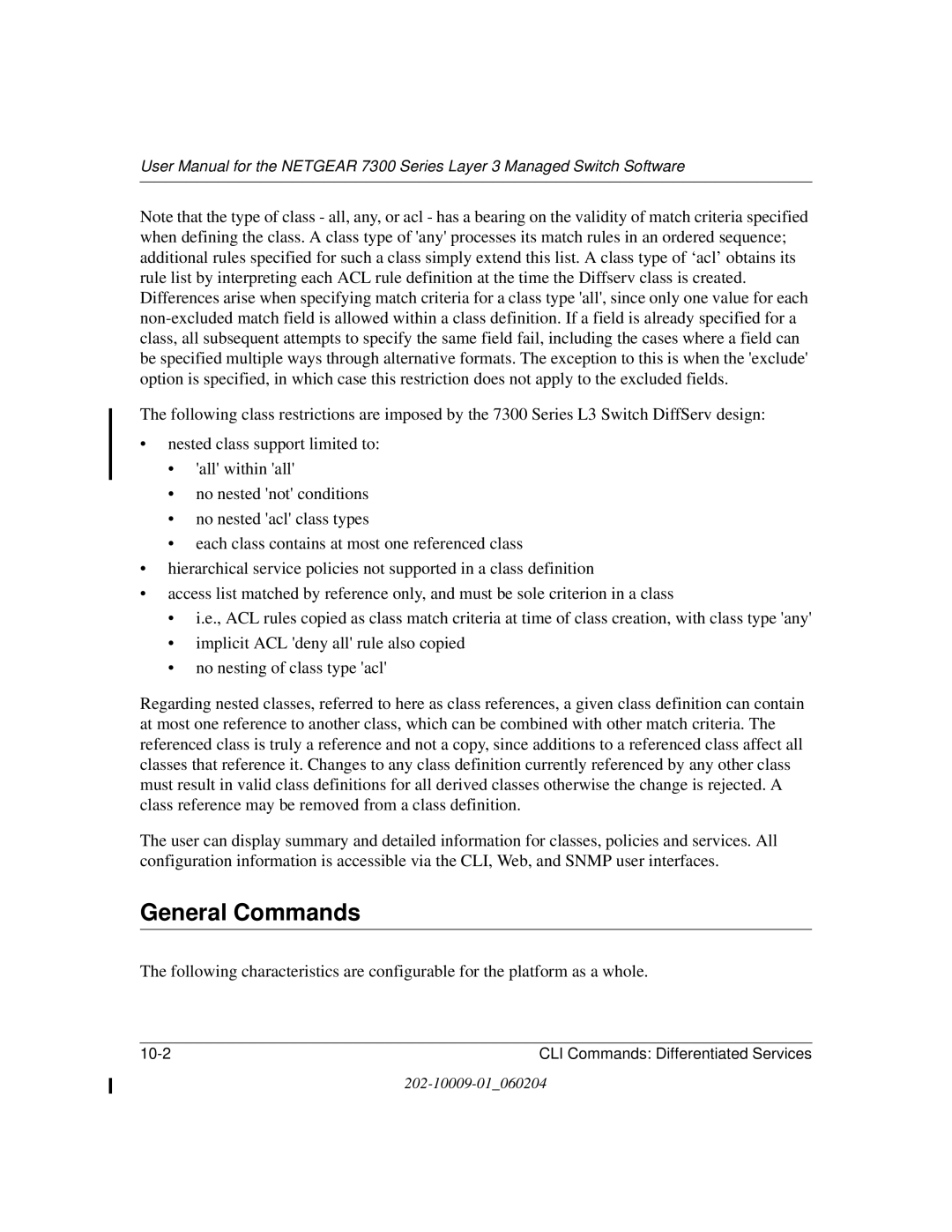
User Manual for the NETGEAR 7300 Series Layer 3 Managed Switch Software
Note that the type of class - all, any, or acl - has a bearing on the validity of match criteria specified when defining the class. A class type of 'any' processes its match rules in an ordered sequence; additional rules specified for such a class simply extend this list. A class type of ‘acl’ obtains its rule list by interpreting each ACL rule definition at the time the Diffserv class is created. Differences arise when specifying match criteria for a class type 'all', since only one value for each
The following class restrictions are imposed by the 7300 Series L3 Switch DiffServ design:
•nested class support limited to:
•'all' within 'all'
•no nested 'not' conditions
•no nested 'acl' class types
•each class contains at most one referenced class
•hierarchical service policies not supported in a class definition
•access list matched by reference only, and must be sole criterion in a class
•i.e., ACL rules copied as class match criteria at time of class creation, with class type 'any'
•implicit ACL 'deny all' rule also copied
•no nesting of class type 'acl'
Regarding nested classes, referred to here as class references, a given class definition can contain at most one reference to another class, which can be combined with other match criteria. The referenced class is truly a reference and not a copy, since additions to a referenced class affect all classes that reference it. Changes to any class definition currently referenced by any other class must result in valid class definitions for all derived classes otherwise the change is rejected. A class reference may be removed from a class definition.
The user can display summary and detailed information for classes, policies and services. All configuration information is accessible via the CLI, Web, and SNMP user interfaces.
General Commands
The following characteristics are configurable for the platform as a whole.
CLI Commands: Differentiated Services |
